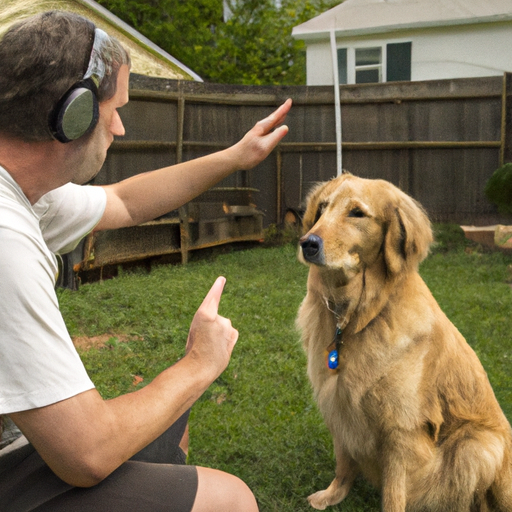Understanding Why Dogs Bark
Firstly, it’s important to understand that dogs bark for a variety of reasons. You could think of barking as their language, a way for them to communicate. They may bark out of fear, for attention, to alert you to something, or simply because they’re bored.
To control your dog’s barking, you need to understand why they’re doing it in the first place. Pay attention to their body language, the situation they’re in, and even the tone and rhythm of their bark. All these can provide clues to what your dog is trying to communicate.
Training Your Dog to Stop Barking
- Establish command: Start by teaching your dog the “quiet” command. Use a firm, clear voice and reward your dog when they stop barking.
- Remove or mitigate the trigger: If you know what triggers your dog’s barking, use it to your advantage.
- Use distractions: Sometimes, distracting your dog can help stop the barking. You could use toys, treats, or even change your location.
- Ignore the barking: If your dog is barking for attention, ignoring them might do the trick. Turn your back, avoid eye contact, and don’t speak to them until they stop barking.
Remember, training takes time and patience. It’s crucial to be consistent and reward your dog for good behavior.
Using Bark Control Devices
There are several devices on the market designed to help control barking. Here’s a comparison of the most common ones:
| Device | Pros | Cons |
|---|---|---|
| Bark collars | Can be effective, available in different types (spray, ultrasonic, static) | Can be seen as inhumane, might not work for all dogs |
| Ultrasonic devices | Non-invasive, can work for multiple dogs | Effectiveness varies, some dogs may get used to the sound |
| Training whistles | Non-invasive, can be used for different commands | Requires consistent training, effectiveness varies |
Choosing a Professional Dog Trainer
Sometimes, you might need to enlist the help of a professional dog trainer. Look for someone who uses positive reinforcement techniques and is accredited by a reputable organization. Don’t be afraid to ask questions about their training methods and experience.
Medical Causes of Excessive Barking
Sometimes, excessive barking may be due to underlying medical issues. If you’ve tried everything and your dog is still barking uncontrollably, it might be time to consult with a veterinarian. They can rule out any health conditions that could be causing the behavior.
Preventing Barking Before It Starts
Preventing barking from becoming a problem in the first place is much easier than trying to stop it once it’s become a habit. Socialize your dog from a young age, provide plenty of mental and physical stimulation, and establish clear boundaries and routines.
Frequently Asked Questions
What if my dog doesn’t respond to any of these methods?
If your dog doesn’t respond to these methods, it might be time to consult a professional dog trainer or a veterinarian. They can provide additional insights and potentially diagnose any underlying issues causing the barking.
Can I use a bark collar on my puppy?
Bark collars are generally not recommended for puppies under six months of age. They’re still learning about the world and negative reinforcement might create fear or anxiety.
How long will it take to train my dog to stop barking?
The time it takes to train a dog to stop barking will vary depending on the dog and the cause of the barking. Consistency is key, and it’s important to remember that change will not happen overnight.
Remember, understanding and patience are key in controlling your dog’s barking. By identifying the cause, responding appropriately, and providing positive reinforcement, you can help your dog communicate in a less disruptive way.



